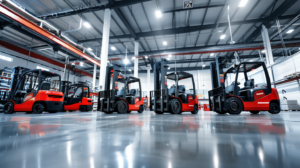Introduction to Rough Terrain Forklifts
What Are Rough Terrain Forklifts?
Rough terrain forklifts are heavy-duty machines designed to operate in challenging outdoor environments where conventional forklifts struggle. Unlike standard warehouse forklifts that run on smooth concrete surfaces, rough terrain forklifts come equipped with large pneumatic tires, robust suspensions, and powerful engines. These features allow them to maneuver effectively on gravel, mud, sand, and uneven construction sites.
Key Features and Applications
The defining qualities of rough terrain forklifts include high ground clearance, four-wheel drive capabilities, and reinforced masts. These machines are widely used in industries such as construction, mining, agriculture, and logistics. For example, construction sites rely on them to move heavy building materials, while farms use them to handle bulky loads like hay bales or feed supplies.
Growing Global Demand for Rough Terrain Forklifts
The global demand for rough terrain forklifts has been growing steadily due to increased infrastructure projects, urban development, and industrial expansion. Developing nations in Africa and Asia, in particular, have fueled the demand for cost-efficient yet reliable equipment, creating opportunities for exporters like China to dominate the market.
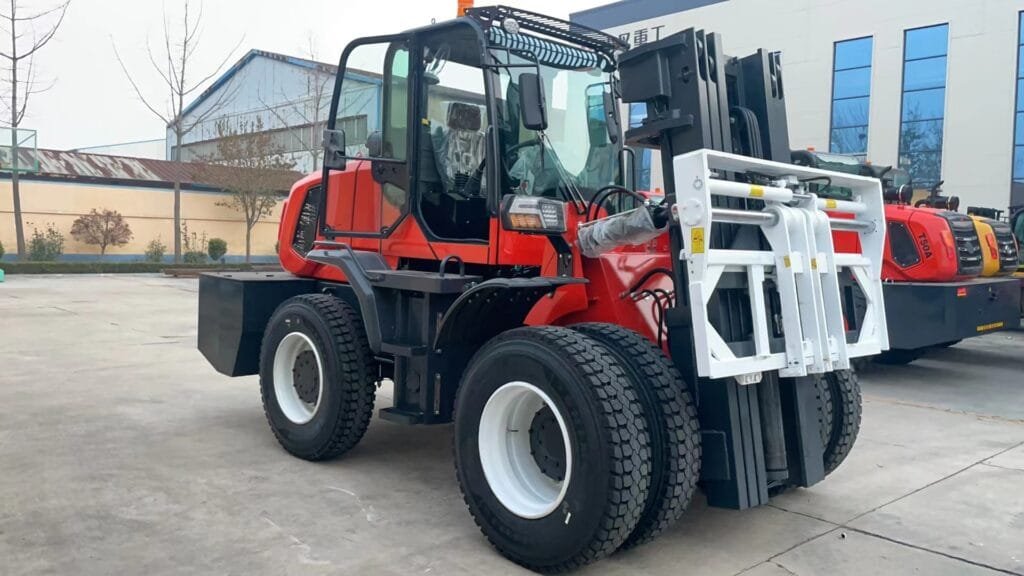
China’s Rise as a Global Manufacturing Powerhouse
Historical Context of China’s Manufacturing Sector
China’s journey to becoming the “world’s factory” began in the late 20th century with economic reforms that encouraged industrialization and global trade. Over the years, the country has built a vast network of specialized factories producing machinery, electronics, and construction equipment—including forklifts.
Government Policies and Industrial Support
The Chinese government has actively supported heavy equipment manufacturing by offering subsidies, tax incentives, and export-friendly policies. Initiatives like “Made in China 2025” have further encouraged modernization, automation, and global competitiveness in the machinery sector.
Infrastructure and Technological Advancements
China has invested heavily in ports, highways, and logistics systems, which facilitate smooth domestic and international trade. Moreover, advancements in CNC machining, robotics, and material sciences have allowed Chinese manufacturers to produce forklifts that rival Western counterparts in both quality and reliability.
Competitive Advantages of Chinese Forklift Manufacturers
Cost-Effective Production and Labor Efficiency
One of the primary reasons China leads in forklift exports is cost efficiency. With access to affordable raw materials and skilled labor, Chinese manufacturers can produce forklifts at significantly lower prices compared to Western brands—without compromising essential performance.
Advanced Engineering and Innovation
Chinese forklift companies have increasingly invested in R&D. Many brands now design models with smart telematics, hybrid engines, and improved hydraulic systems to meet international demands.
Wide Range of Models and Customization
Buyers across the world seek different specifications, from compact rough terrain forklifts to heavy-duty versions capable of lifting several tons. Chinese manufacturers provide extensive customization options, ensuring flexibility for diverse industries.
Strong Supply Chain and Logistics Network
China’s well-integrated supply chain and export hubs allow for bulk production and fast shipment worldwide. This logistical strength positions the country as a reliable partner for global buyers.
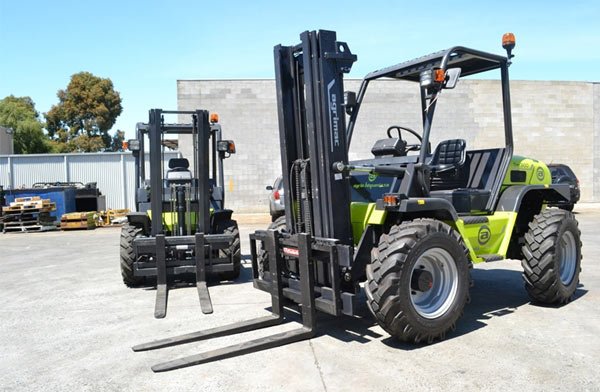
Export Strategies that Strengthen China’s Position
International Trade Agreements and Partnerships
China has strengthened its foothold through bilateral trade agreements and collaborations with developing economies. These relationships ensure smooth entry into emerging markets.
Competitive Pricing and Financing Options
Unlike many Western brands, Chinese exporters often provide flexible financing plans, making forklifts more accessible for small and medium businesses.
Customer-Oriented After-Sales Support
Leading Chinese brands invest in global service centers and spare parts distribution. This reassures buyers that they won’t face long downtimes due to maintenance delays.
Comparing Chinese Rough Terrain Forklifts with Global Competitors
Performance and Reliability Standards
Modern Chinese forklifts undergo rigorous testing to ensure they meet international performance standards. Many are now on par with American and European machines in terms of lifting power and maneuverability.
Durability Across Different Terrains
From desert construction projects in the Middle East to muddy farmlands in Africa, Chinese forklifts have proven their durability in diverse environments.
Price-to-Value Ratio
Perhaps the biggest advantage remains affordability. Buyers often find they can purchase two reliable Chinese forklifts for the cost of one Western-made machine, without sacrificing critical features.
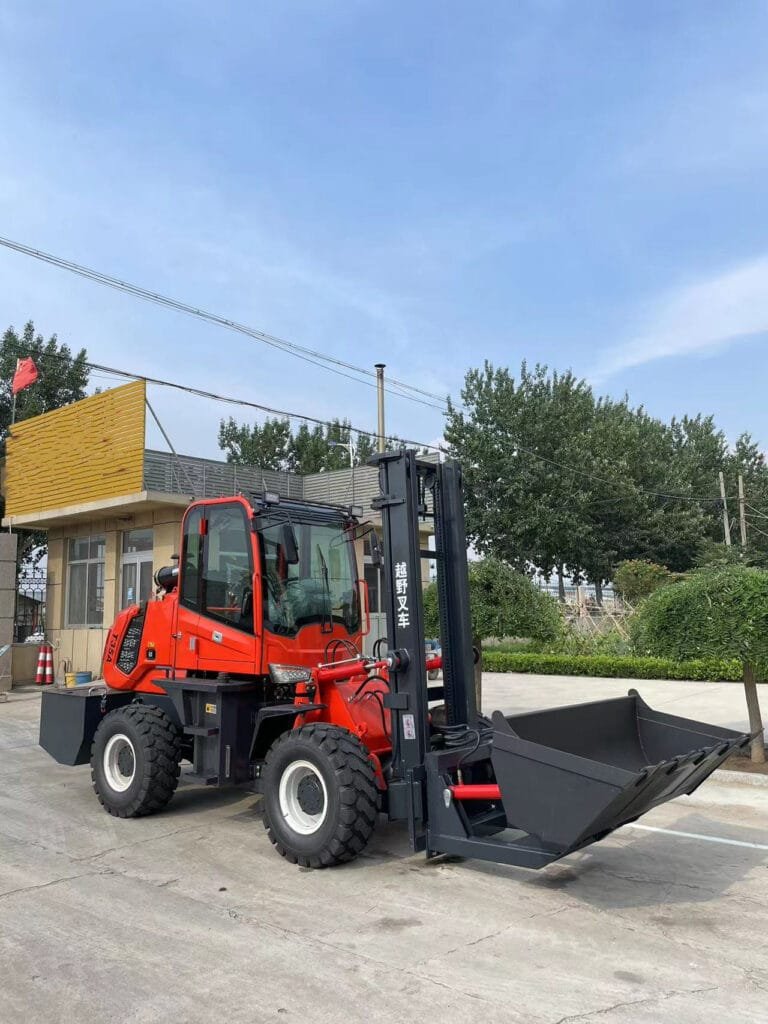
The Role of Quality Standards and Certifications
Compliance with Global Safety Regulations
China has improved its compliance with international standards, ensuring its forklifts meet global safety and environmental requirements.
ISO and CE Certifications in Chinese Forklifts
Most major manufacturers now obtain ISO and CE certifications, boosting their credibility among international buyers.
Ensuring Trust in International Markets
This focus on certifications reassures importers that their machines are safe, efficient, and compliant with local laws.
Spotlight on Nicosail: A Case of Chinese Excellence
Nicosail’s Manufacturing Approach
Among China’s forklift manufacturers, Nicosail stands out for blending affordability with innovation. The company emphasizes modern engineering techniques, strict quality control, and customer-focused solutions.
Product Features That Stand Out
Nicosail’s rough terrain forklifts often feature enhanced load capacities, ergonomic operator cabins, and robust stability systems. These qualities make them ideal for construction companies, farms, and logistics providers needing reliable machines at a reasonable price.
Reputation Among Global Buyers
Nicosail has steadily built a reputation in both developing and developed markets. Its success reflects the broader strengths of Chinese manufacturing while also demonstrating how Chinese brands can compete head-to-head with global industry leaders.
Key Markets for Chinese Rough Terrain Forklifts
North America
Chinese forklifts are gaining ground in North America, especially among budget-conscious businesses and rental companies.
Europe
European buyers value Chinese machines for their balance between cost-efficiency and adherence to EU safety standards.
Africa and Developing Nations
Africa remains one of the fastest-growing markets due to infrastructure projects requiring heavy equipment.
Southeast Asia and Oceania
In these regions, affordability and reliable performance make Chinese forklifts the first choice for many businesses.
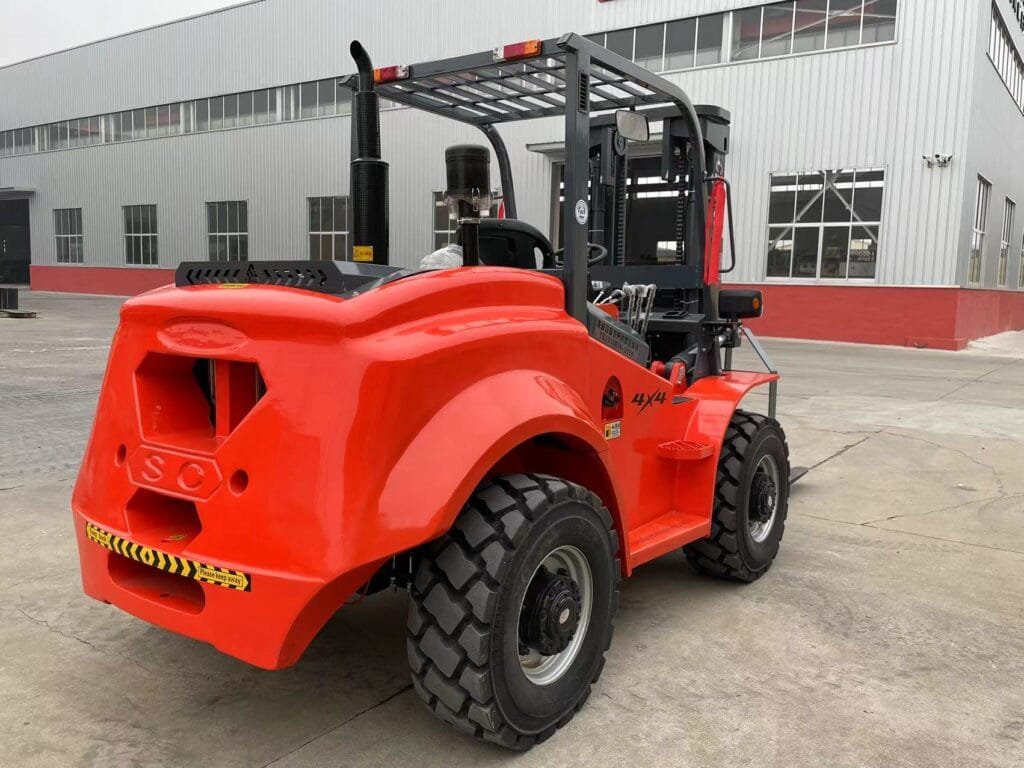
Challenges Faced by Chinese Forklift Exporters
Trade Tariffs and Political Tensions
Fluctuating trade policies, especially between China and Western nations, pose challenges to exports.
Intellectual Property Concerns
Some markets remain cautious about potential design imitation or patent disputes, though this issue is gradually improving.
Competition from Established Western Brands
Brands from the U.S., Germany, and Japan still hold strong reputations, requiring Chinese manufacturers to continually innovate.
Future Trends in Rough Terrain Forklift Industry
Sustainability and Eco-Friendly Designs
Electric and hybrid forklifts are on the rise, and Chinese manufacturers are investing heavily in sustainable models.
Integration of Smart Technologies
Features like GPS tracking, remote diagnostics, and telematics are becoming standard in advanced forklift models.
Growth of E-Commerce and Global Distribution
As global supply chains expand, demand for efficient rough terrain forklifts will continue to grow—further boosting Chinese exports.
Frequently Asked Questions (FAQs)
1. Why are Chinese forklifts cheaper than Western brands?
China benefits from lower production costs, efficient supply chains, and government support, making their forklifts more affordable.
2. Are Chinese rough terrain forklifts durable?
Yes, modern Chinese forklifts undergo strict quality checks and certifications to ensure durability across various terrains.
3. How does Nicosail compare to other manufacturers?
Nicosail is known for balancing affordability with innovation, offering rugged forklifts that meet international standards while staying budget-friendly.
4. Which industries benefit most from rough terrain forklifts?
Construction, mining, agriculture, and logistics are the primary industries that benefit from rough terrain forklifts.
5. What certifications should buyers check for when importing?
Look for ISO and CE certifications to ensure compliance with safety and performance standards.
6. How does after-sales support work for Chinese forklifts?
Most reputable Chinese brands, including Nicosail, have established service centers and global spare parts distribution to support international buyers.
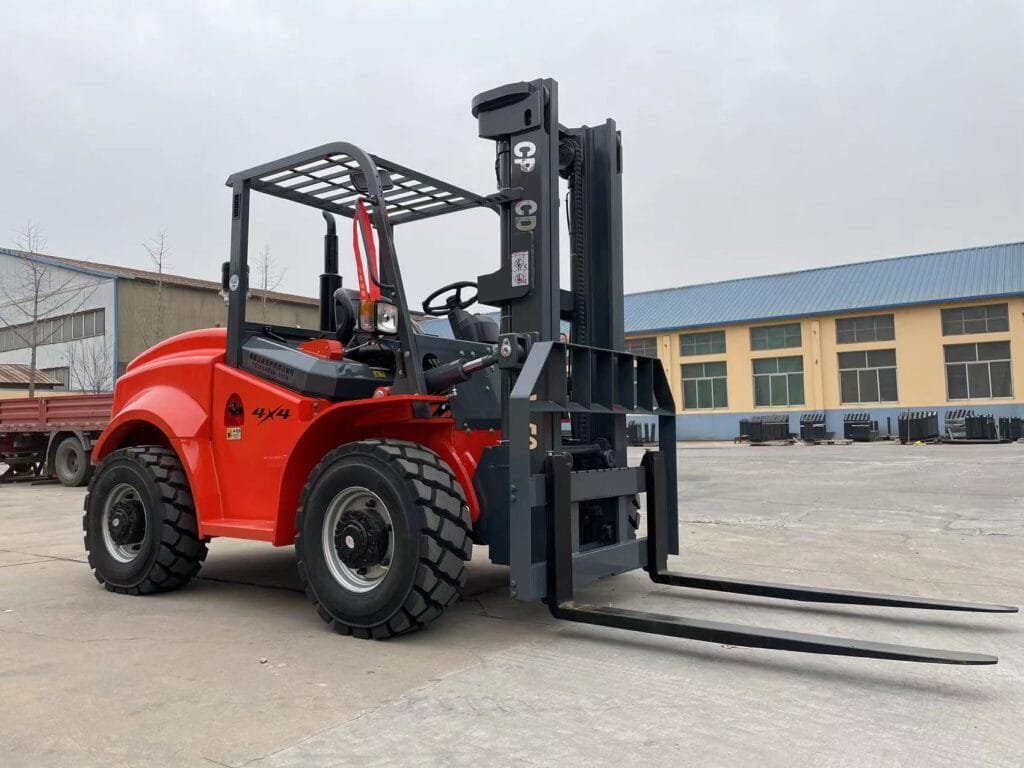
Conclusion: Why China Will Remain the Global Leader in Rough Terrain Forklifts
China’s leadership in exporting rough terrain forklifts is no accident. A combination of cost efficiency, innovation, government support, and global trade networks has positioned the nation at the forefront of the industry. While challenges like tariffs and competition persist, Chinese manufacturers—exemplified by companies like Nicosail—continue to deliver reliable, affordable, and high-quality machines to meet global demand.
As industries worldwide expand, China’s role as the leading exporter of rough terrain forklifts is set to remain strong for decades to come.


